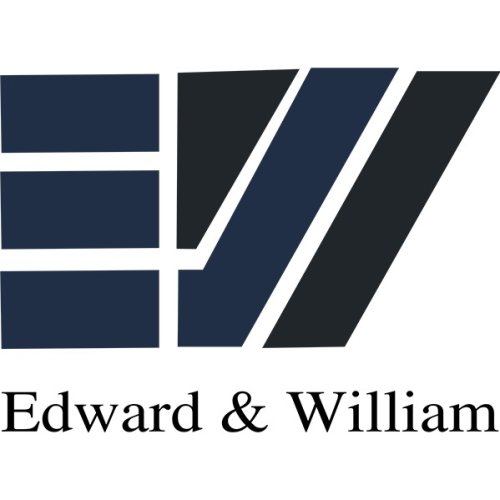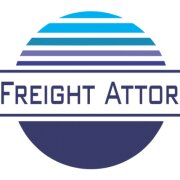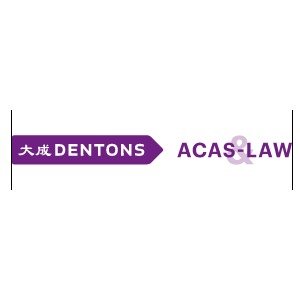Best Franchising Lawyers in Port Harcourt
Share your needs with us, get contacted by law firms.
Free. Takes 2 min.
List of the best lawyers in Port Harcourt, Nigeria
About Franchising Law in Port Harcourt, Nigeria
Franchising is a business model that allows individuals to operate a business under an established brand, following specific guidelines and protocols. In Port Harcourt, Nigeria, franchising is regulated by both national and local laws. These laws aim to protect both franchisors and franchisees and ensure a fair and transparent business environment.
Why You May Need a Lawyer
While franchising can offer great opportunities for entrepreneurs, it is a complex legal process. Here are a few common situations where seeking legal advice in franchising is highly recommended:
- Reviewing and negotiating franchise agreements
- Understanding your rights and obligations as a franchisee
- Resolving disputes, such as breaches of contract
- Complying with local laws and regulations
- Protecting your intellectual property rights
Local Laws Overview
Franchising in Port Harcourt, Nigeria, is primarily governed by the Federal Competition and Consumer Protection Act of 2018. This legislation provides guidelines on various aspects of franchising, including disclosure requirements, termination and renewal of franchise agreements, intellectual property protection, and dispute resolution mechanisms.
Frequently Asked Questions
1. What are the disclosure requirements for franchisors in Port Harcourt?
All franchisors operating in Port Harcourt are legally required to provide potential franchisees with a Franchise Disclosure Document (FDD). This document contains detailed information about the franchisor's business, financials, terms of the franchise agreement, and other relevant details.
2. Can I negotiate the terms of a franchise agreement?
Yes, franchise agreements are often negotiable. However, it's crucial to seek legal advice to understand the implications of any modifications and ensure they align with local laws.
3. What happens if a franchise agreement is terminated?
The terms of termination and the rights of both parties are usually outlined in the franchise agreement. It's advisable to consult a lawyer to understand your rights and responsibilities in such a situation.
4. How can I protect my intellectual property as a franchisor?
In Port Harcourt, registering your trademarks and copyrights with the Nigerian Copyright Commission (NCC) and the Trademarks, Patents, and Designs Registry is essential to protect your intellectual property rights.
5. What options do I have if a franchise dispute arises?
If a dispute arises, mediation and arbitration are common methods of resolving conflicts in franchising. Consulting with a lawyer experienced in franchising can help you navigate the appropriate dispute resolution avenues.
Additional Resources
For further information and assistance regarding franchising in Port Harcourt, Nigeria, you may find the following resources helpful:
- Port Harcourt Chamber of Commerce, Industry, Mines, and Agriculture
- Nigerian Franchise Association
- Small and Medium Enterprises Development Agency of Nigeria (SMEDAN)
Next Steps
If you require legal assistance in franchising in Port Harcourt, Nigeria, it is recommended to follow these steps:
- Research and shortlist lawyers experienced in franchising law in Port Harcourt.
- Schedule consultation meetings with potential lawyers to discuss your specific needs and concerns.
- Select a lawyer who understands your requirements and has a track record of success in handling franchise-related cases.
- Work closely with your chosen lawyer to review contracts, negotiate terms, and ensure compliance with local laws.
Lawzana helps you find the best lawyers and law firms in Port Harcourt through a curated and pre-screened list of qualified legal professionals. Our platform offers rankings and detailed profiles of attorneys and law firms, allowing you to compare based on practice areas, including Franchising, experience, and client feedback.
Each profile includes a description of the firm's areas of practice, client reviews, team members and partners, year of establishment, spoken languages, office locations, contact information, social media presence, and any published articles or resources. Most firms on our platform speak English and are experienced in both local and international legal matters.
Get a quote from top-rated law firms in Port Harcourt, Nigeria — quickly, securely, and without unnecessary hassle.
Disclaimer:
The information provided on this page is for general informational purposes only and does not constitute legal advice. While we strive to ensure the accuracy and relevance of the content, legal information may change over time, and interpretations of the law can vary. You should always consult with a qualified legal professional for advice specific to your situation.
We disclaim all liability for actions taken or not taken based on the content of this page. If you believe any information is incorrect or outdated, please contact us, and we will review and update it where appropriate.
















